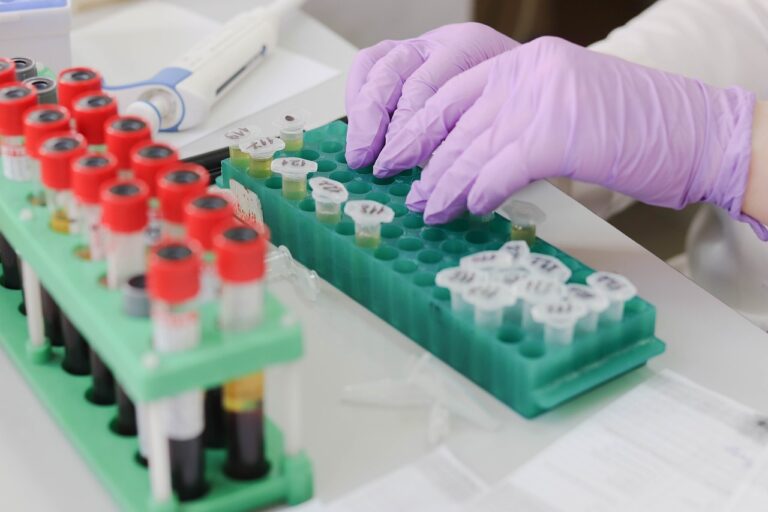Exploring the impact of climate change on the distribution of vector-borne infectious diseases: My 99 exch, Laser book 247 com registration, Yolo247 club login
my 99 exch, laser book 247 com registration, yolo247 club login: Nephrology Gadgets: Devices to Monitor and Improve Kidney Function
As technology continues to advance, so does the field of nephrology, the branch of medicine that focuses on the diagnosis and treatment of kidney diseases. Nephrologists now have access to a variety of gadgets and devices that can help them monitor and improve kidney function in their patients. These tools can provide valuable insights into a patient’s health, allowing for more personalized and effective treatment plans. In this article, we will explore some of the latest nephrology gadgets and how they are revolutionizing the field.
1. Smart Glucose Monitors
One of the most common complications of kidney disease is diabetes, which can negatively impact kidney function. Smart glucose monitors are handy gadgets that allow patients to track their blood sugar levels in real-time. By monitoring their glucose levels regularly, patients can better manage their diabetes and potentially prevent further damage to their kidneys.
2. Wearable Blood Pressure Monitors
High blood pressure is another risk factor for kidney disease. Wearable blood pressure monitors are convenient devices that allow patients to track their blood pressure throughout the day. By keeping a close eye on their blood pressure, patients can work with their healthcare providers to develop a treatment plan to keep their blood pressure under control.
3. Smart Scales
Monitoring weight is crucial for patients with kidney disease, as sudden weight gain or loss can indicate fluid retention or dehydration, both of which can affect kidney function. Smart scales are devices that can not only measure a patient’s weight but also provide insights into body composition, such as muscle mass and body fat percentage.
4. Home Dialysis Machines
For patients with end-stage kidney disease, dialysis is a life-saving treatment that helps remove waste and excess fluid from the blood. Home dialysis machines allow patients to perform dialysis treatments in the comfort of their own homes, providing more flexibility and independence compared to in-center dialysis.
5. Remote Monitoring Apps
Remote monitoring apps are becoming increasingly popular in the field of nephrology. These apps allow patients to track their vital signs, such as blood pressure, weight, and blood sugar levels, and share this information with their healthcare providers in real-time. This enables healthcare providers to monitor their patients’ health more closely and adjust their treatment plans as needed.
6. Implantable Devices
Implantable devices, such as kidney sensors, are designed to provide real-time data on kidney function. These devices can track factors like blood flow, filtration rate, and oxygen levels in the kidneys, helping nephrologists better understand their patients’ kidney health and make more informed treatment decisions.
7. Wearable Kidney Monitors
Wearable kidney monitors are small, non-invasive devices that can be worn on the body to continuously monitor kidney function. These monitors can track factors like kidney blood flow, urine output, and electrolyte levels, providing valuable insights into a patient’s kidney health over time.
8. Smart Water Bottles
Staying hydrated is essential for kidney health, as dehydration can strain the kidneys and increase the risk of kidney stones. Smart water bottles are gadgets that can help patients track their water intake throughout the day and remind them to drink enough water to stay properly hydrated.
9. Telemedicine Platforms
Telemedicine platforms have become increasingly important in the field of nephrology, especially in light of the COVID-19 pandemic. These platforms allow patients to consult with their nephrologists remotely, reducing the need for in-person visits and ensuring continuity of care.
10. AI-Powered Diagnostic Tools
Artificial intelligence (AI) has the potential to revolutionize the field of nephrology by providing more accurate and efficient diagnostic tools. AI-powered algorithms can analyze medical imaging scans, lab results, and patient data to assist nephrologists in diagnosing kidney diseases and developing personalized treatment plans.
11. Remote Patient Monitoring Devices
Remote patient monitoring devices, such as wearable sensors and smart devices, can track a wide range of health metrics, from heart rate and blood pressure to oxygen saturation and activity levels. By continuously monitoring these metrics, patients and healthcare providers can identify changes in health status early and intervene before complications arise.
12. Portable Ultrasound Machines
Ultrasound imaging is a valuable tool in nephrology for visualizing the kidneys and detecting abnormalities. Portable ultrasound machines allow nephrologists to perform ultrasound scans at the point of care, enabling them to quickly assess kidney function and make timely treatment decisions.
13. Continuous Glucose Monitors
Continuous glucose monitors are wearable devices that provide a continuous stream of glucose readings throughout the day. For patients with diabetes and kidney disease, these devices can help them monitor their blood sugar levels closely and make adjustments to their diet, medication, and lifestyle to keep their diabetes under control.
14. Smart Pill Dispensers
Managing multiple medications can be challenging for patients with kidney disease. Smart pill dispensers are gadgets that can help patients organize their medications, set reminders for when to take them, and track their adherence to their prescribed treatment regimens.
15. Home Blood Testing Kits
Home blood testing kits are convenient devices that allow patients to monitor their kidney function at home. These kits can measure factors like creatinine levels, electrolyte levels, and kidney function markers, providing patients with valuable insights into their kidney health between regular doctor visits.
16. Smart Nutrition Trackers
A healthy diet is essential for managing kidney disease effectively. Smart nutrition trackers are gadgets that can help patients track their food intake, monitor their nutrient levels, and make informed decisions about their diet to support their kidney health.
17. Virtual Reality Therapy
Virtual reality therapy is an emerging technology that is being used in nephrology to help patients manage pain, anxiety, and stress associated with kidney disease and dialysis treatments. By immersing patients in virtual environments, virtual reality therapy can distract them from their discomfort and improve their overall well-being.
18. Mobile Health Apps
Mobile health apps are a convenient way for patients to access important health information, monitor their symptoms, track their medications, and communicate with their healthcare providers. These apps can be especially useful for patients with kidney disease who need to stay on top of their treatment regimens and follow-up appointments.
19. Smart Insulin Pens
For patients with diabetes and kidney disease, managing insulin injections accurately is crucial for controlling blood sugar levels. Smart insulin pens are gadgets that can track insulin doses, provide reminders for when to inject insulin, and monitor blood glucose levels to help patients better manage their diabetes.
20. Home Hemodialysis Machines
Home hemodialysis machines are advanced devices that enable patients to perform hemodialysis treatments at home. These machines are designed to be user-friendly and compact, allowing patients to dialyze more frequently and for longer durations, which may lead to better outcomes and improved quality of life.
FAQs
Q: Are these nephrology gadgets covered by insurance?
A: It depends on the specific device and your insurance coverage. Some nephrology gadgets may be covered by insurance if they are deemed medically necessary by your healthcare provider.
Q: Can I buy these gadgets over the counter?
A: Some nephrology gadgets, such as smart glucose monitors and smart pill dispensers, can be purchased over the counter at pharmacies or online. However, more advanced devices like home dialysis machines and implantable sensors may require a prescription from your healthcare provider.
Q: How can I learn to use these nephrology gadgets effectively?
A: Your healthcare provider or a nephrology nurse can provide guidance on how to use these gadgets effectively and integrate them into your daily routine. Many manufacturers also offer user manuals and instructional videos to help you get started.
Q: Are these nephrology gadgets suitable for all patients with kidney disease?
A: The suitability of nephrology gadgets depends on your specific health needs and treatment plan. It’s essential to discuss the use of these gadgets with your healthcare provider to ensure they are appropriate for your individual circumstances.
In conclusion, nephrology gadgets have the potential to transform the way kidney disease is monitored and managed, empowering patients to take a more active role in their health and well-being. By leveraging the latest technologies, nephrologists can provide more personalized and effective care to their patients, leading to improved outcomes and a better quality of life. Whether you’re looking to track your blood pressure, monitor your blood sugar levels, or perform dialysis treatments at home, there is a wide range of gadgets available to support your kidney health journey.







